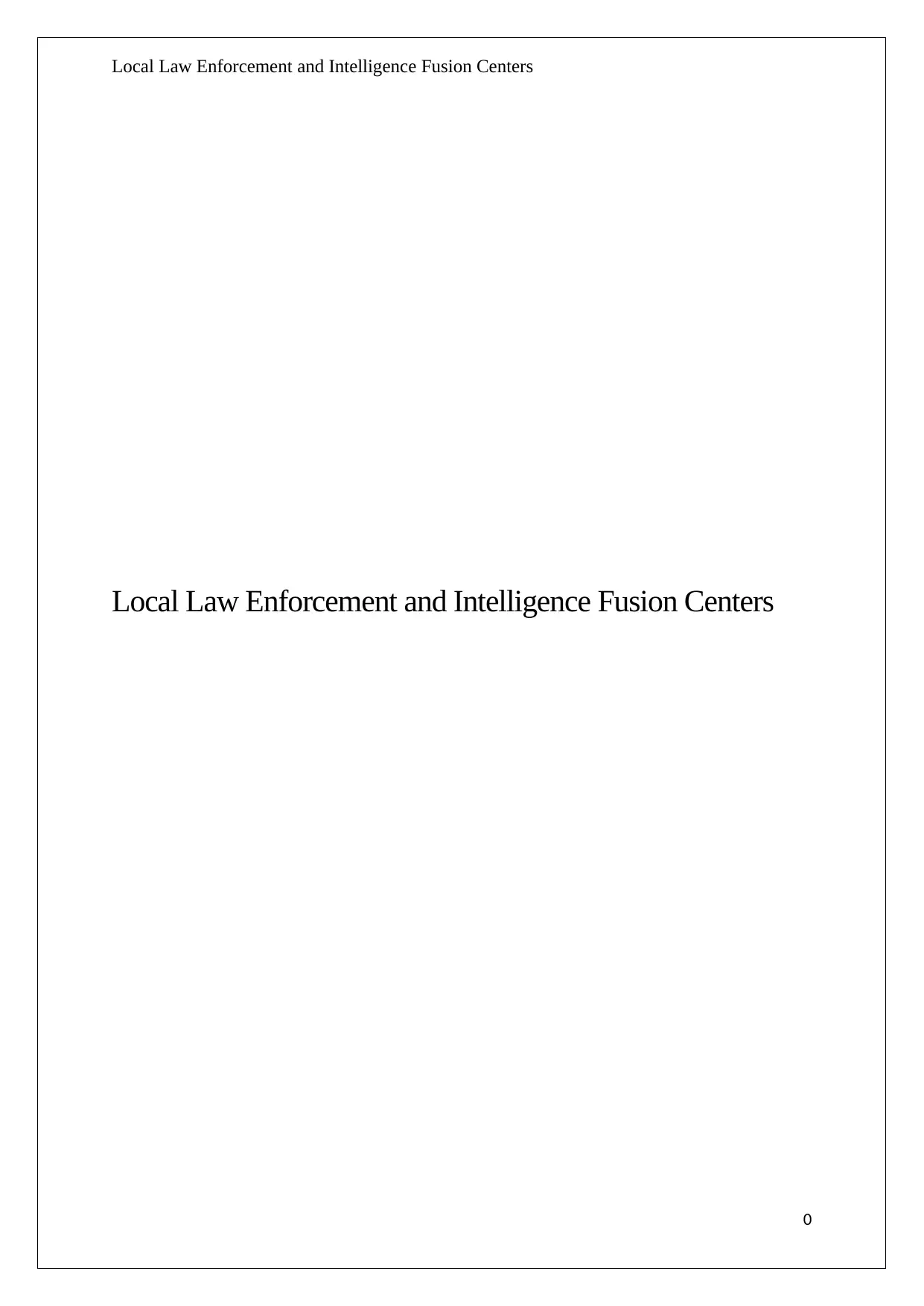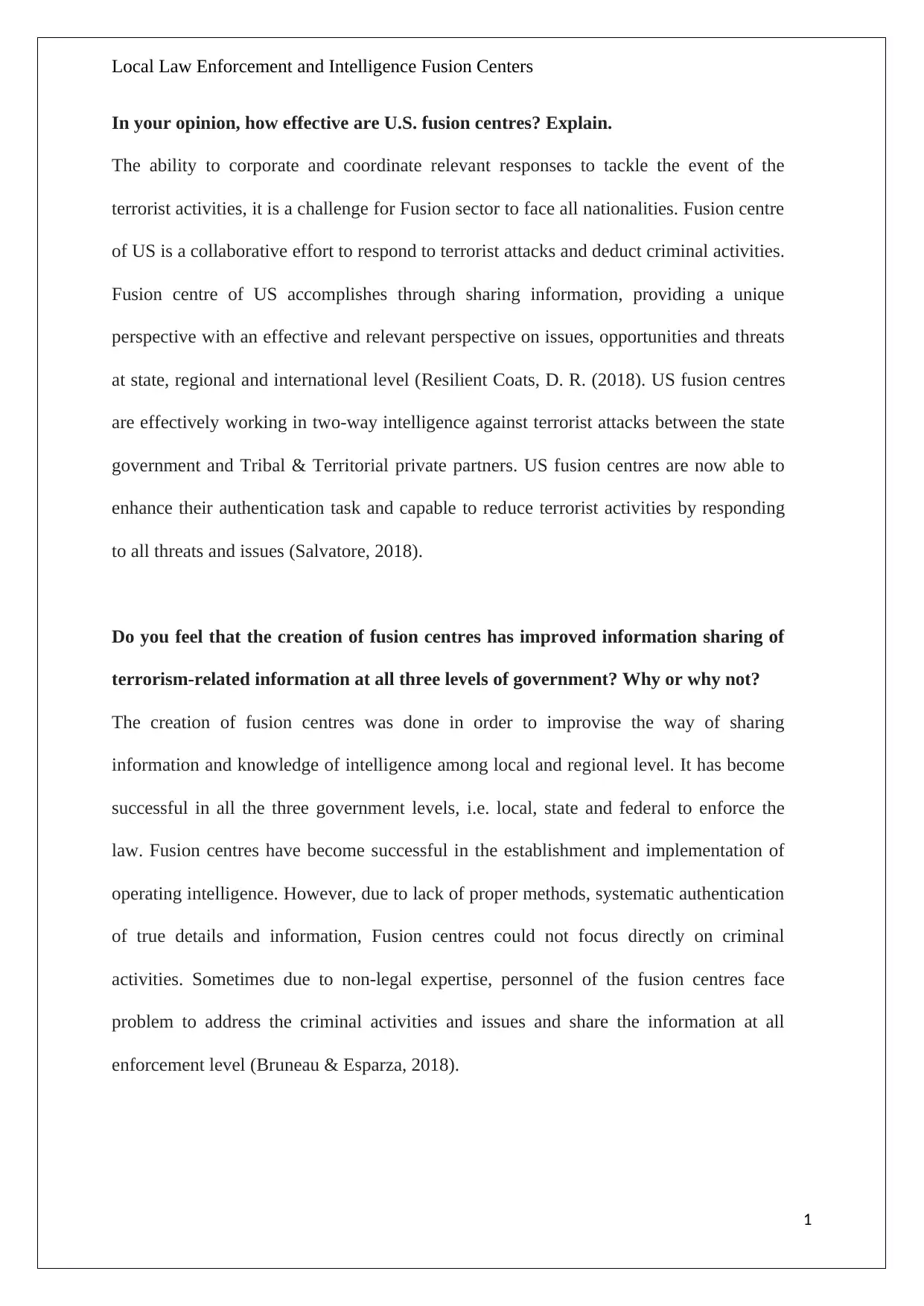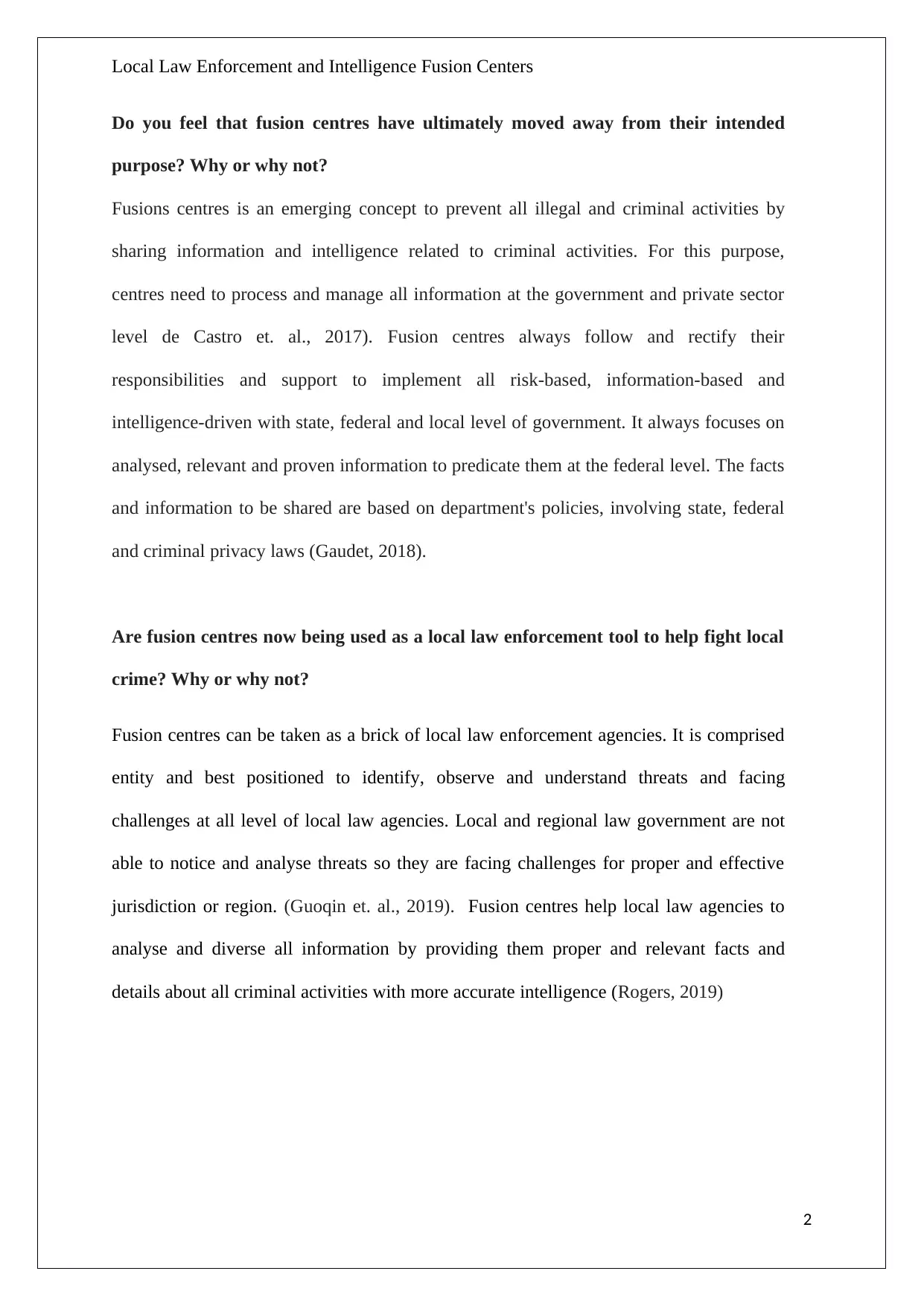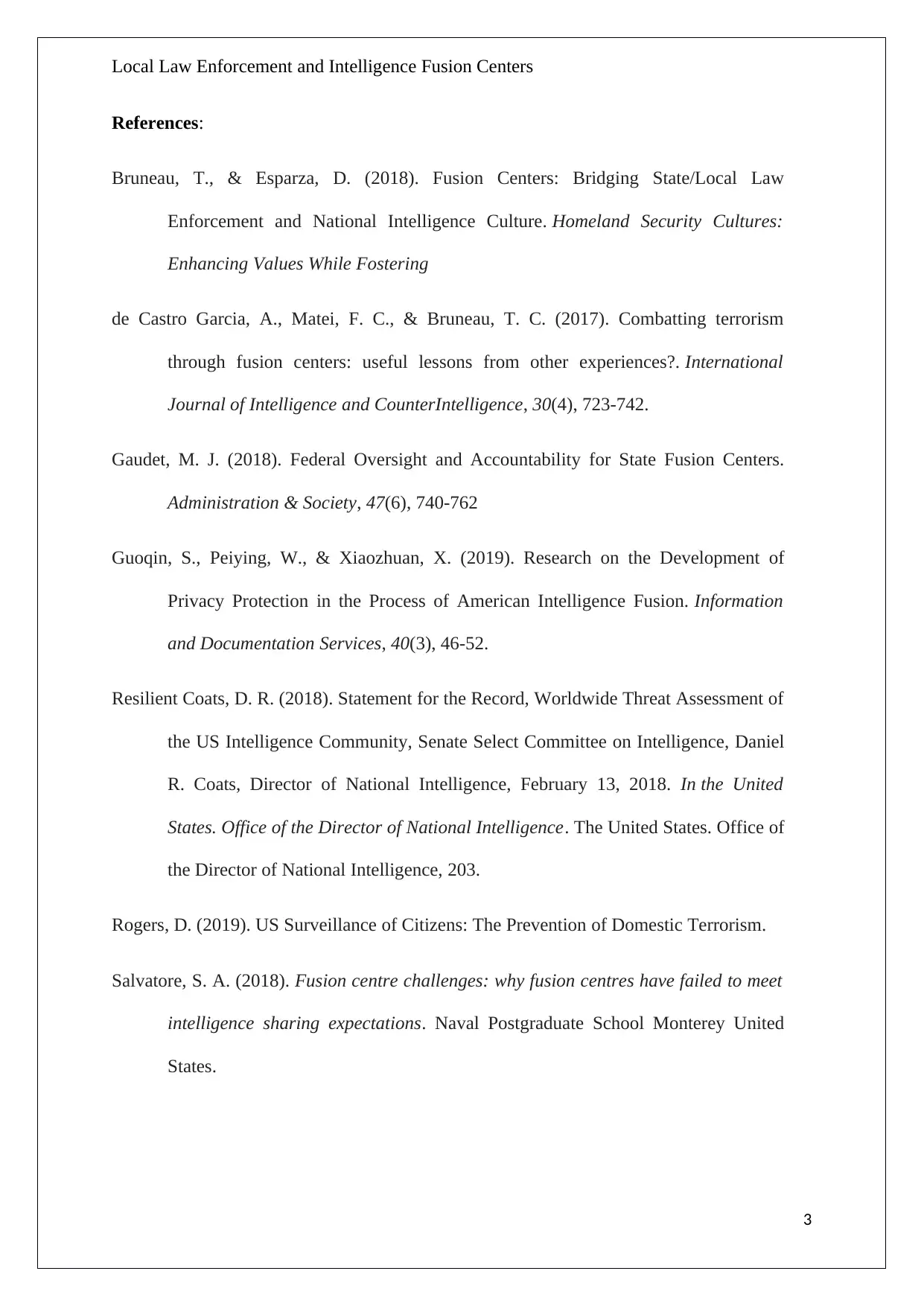Analysis of U.S. Fusion Centers in Law Enforcement and Intelligence
VerifiedAdded on 2022/10/11
|4
|872
|14
Discussion Board Post
AI Summary
This discussion board post analyzes the effectiveness of U.S. fusion centers, which were created to improve information sharing of terrorism-related intelligence among local, state, and federal levels of government. The post examines whether fusion centers have successfully improved information sharing, considering the controversies surrounding the collection and sharing of personal information. It explores whether fusion centers have moved away from their intended purpose and whether they are being used as a local law enforcement tool to fight local crime. The analysis highlights the collaborative efforts of fusion centers in responding to terrorist attacks and criminal activities, the role of fusion centers in enhancing authentication tasks, and how fusion centers assist local law enforcement agencies by providing relevant facts and details about criminal activities with accurate intelligence. The post also references key literature on fusion centers, including their role in bridging state/local law enforcement and national intelligence cultures, combating terrorism, and federal oversight.
1 out of 4











![[object Object]](/_next/static/media/star-bottom.7253800d.svg)